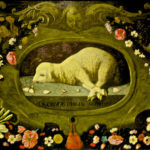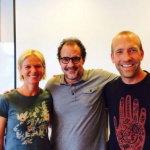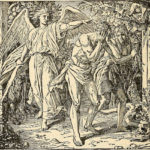We run our website the way we wished the whole internet worked: we provide high quality original content with no ads. We are funded solely by your direct support. Please consider supporting this project.

A Brief Theology of Sin
We were created for unbroken, loving fellowship with God. We see this in the creation story. As we share in this unbroken, trusting fellowship with God, we participate in the very love that the Father, Son, and Holy Spirit share throughout eternity. We also read in the creation story that sin ruptured this fellowship and sidetracked God’s plan. The origin and essence of sin is rooted in how we understand the Tree of the Knowledge of Good and Evil.
The first thing we need to notice about the Tree of the Knowledge of Good and Evil is that it was located in the middle or the center of the garden, along with the Tree of life. Here God provided a provision and a prohibition. The Tree of Life was God’s provision to meet our needs and share his life endlessly. The Tree of the Knowledge of Good and Evil was God’s prohibition against humans overstepping their proper domain.
God provided a “No Trespassing” sign to protect us from overstepping our finitude. At the center of the beautiful existence God wills for us is the humble recognition that we are not God and thus must leave to God what God wills to keep for himself, namely, the knowledge of good and evil.
As the Creator, God alone has the right and the ability to define good and evil. When God administers judgment, knowing good and evil, it serves God’s purpose of inviting agents into his love. When humans try to do this, however, it tends to facilitate death for ourselves and others.
Our fundamental sin is that we place ourselves in the position of God and divide the world between what we judge to be good and what we judge to be evil. And this judgment is the primary thing that keeps us from the doing the central thing God created and saved us to do, namely love like he loves.
God alone knows each human heart. God alone knows what each person was originally given to work with in terms of his or her psychological, physical, and even spiritual aptitudes. God alone knows the myriad factors that influence each decision people make. And God alone knows the extent to which people choose what they do out of their own free will and the extent to which their choices are the result of factors outside themselves. Unless we are intimately involved in a person’s life, this information is completely hidden from us. Hence, while there are intimate contexts in which we are to hold each other accountable, Scripture uniformly testifies that God alone is able to judge and warns us not to judge. (See Matt 7:1-5.)
The essence of sin according to the Genesis account is the transgression of this proper boundary. We are not satisfied with being God-like in our capacity to love; we also want to become God-like in our capacity to judge, which is how the serpent tempts us. But in aspiring toward the latter, we lose our capacity for the former, for unlike God, we cannot judge and love at the same time.
The essence of sin is that we play God. We critically assess and evaluate everything and everyone from our limited, finite, biased perspective. Instead of simply receiving life from the Tree of Life, we try to derive our likeness of God, our life and worth, from that which is forbidden at the center or our existence, the knowledge of good and evil.
—Adapted from Repenting of Religion, pages 67-68
Photo credit: Shaikhji via VisualHunt.com / CC BY-ND
Related Reading

Sanctuary
. SantiMB . via Compfight Jamie Wright wrote this penetrating essay of encountering a woman in a moment of extremity and need. It’s a reminder of our great need for a sanctuary, a safe place to come when the world has gone mad and we have nowhere else to go. From her essay: Because,…

Does the Lord “Devastate” the Earth?
There is this passage that has sometimes been labeled “Isaiah’s Little Apocalypse” that proclaims how the Lord will “lay waste,” “destroy,” and “ruin” the earth. (The following builds on this previous post which identifies a dual speech pattern of God). It begins with: The LORD is going to lay waste the earth and devastate…

Christus Victor Atonement and Girard’s Scapegoat Theory
Many of the major criticisms of Crucifixion of the Warrior God that have been raised since it was published four weeks ago have come from folks who advocate Rene Girard’s understanding of the atonement. A major place where these matters are being discussed is here, and you are free to join. Now, I have to…

3 Traits of a Jesus Kind of Church
A Jesus kind of church (See an introductory post on this here) is called to represent God, just as Christ did. The church is Christ continuing to manifest the true God. Bonhoeffer put it this way, “The Church is not a religious community of worshippers of Christ but is Christ Himself who has taken form…

Goodbye Beloved “Friend at First Sight”
I don’t believe in “love at first sight,” but I do believe that once in a great while, some fortunate people encounter “friends at first sight.” Maybe you know what I’m talking about. There are certain people whose chemistry just seems to draw you in. Minutes after meeting them you find yourself engaging with them,…

What is “Original Sin”?
I get asked about “original sin” quite a bit. Are people born guilty? Many times questions like this originate from folks who are worried about whether babies who die without being baptized go to hell. This is what I was taught as a young Catholic boy, and I have to confess I now find the…
